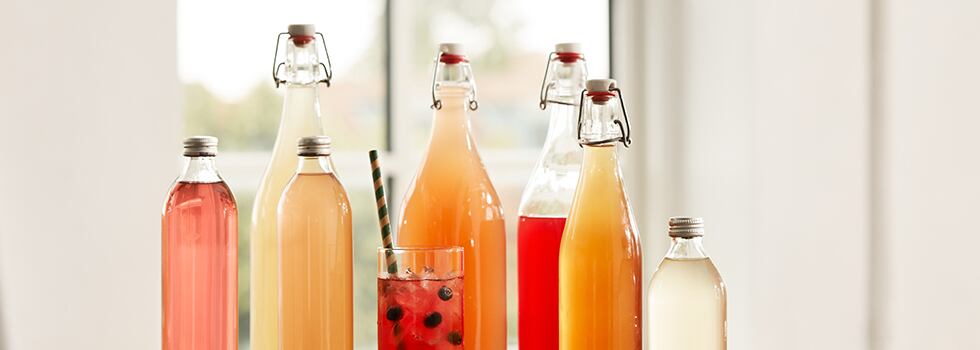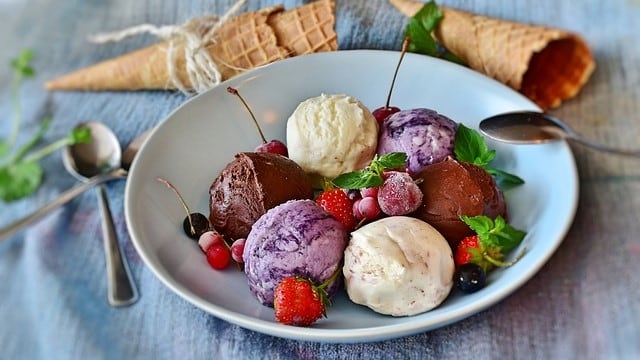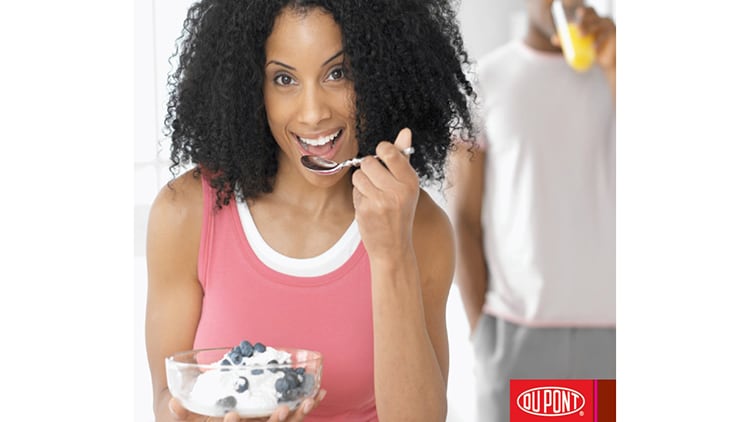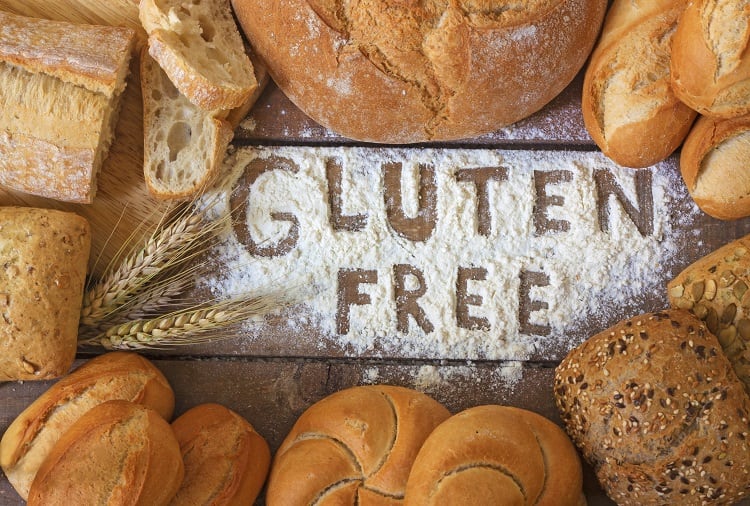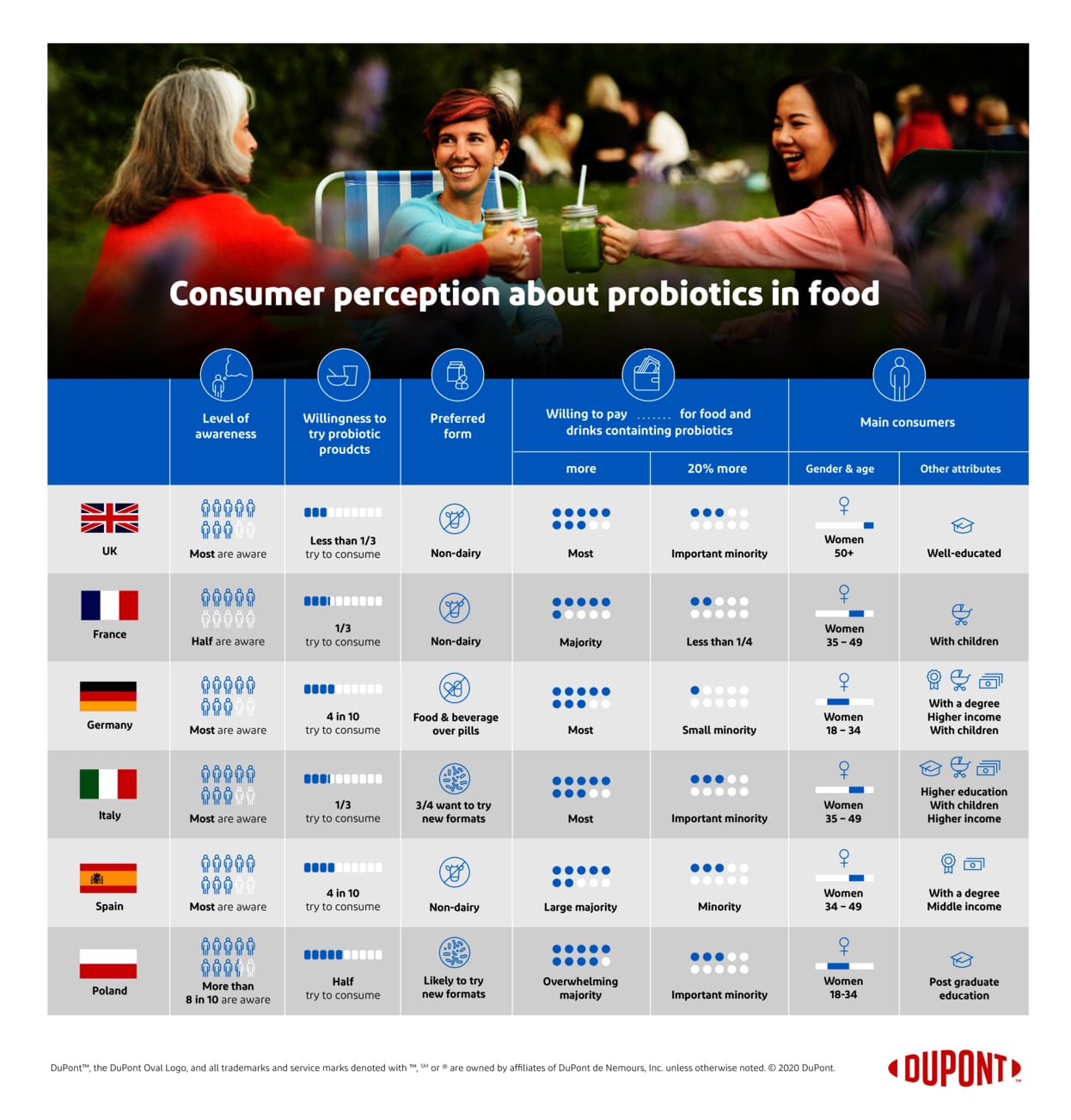Tea is the original plant-based beverage. It’s the second most consumed beverage in the world after water. Its association with words like natural, hydration, replenishment, health, antioxidants – along with its ‘good-for-you’ credentials makes tea the perfect addition to the growing toolbox of ingredients ripe for innovation.
Today we are seeing brand surge in refreshing RTDs (ready-to-drink) that appeal to the health-conscious drinker. With consumers looking to trade up to new holistic experiences, tea is creating a buzz of its own with significant sales in the cold brew tea, kombucha, hard kombucha and hard tea categories. And in collaboration with IFF’s innovation teams there’s opportunity for further differentiation on the themes of: flavour; sweetness; carbonation; texture and mouthfeel; and functional performance in the form of pre- and probiotics.
The fermented tea phenomenon
Fermentation is the oldest form of food processing and preservation. It’s a natural process through which microorganisms (yeast and bacteria) convert carbohydrates (starch and sugar) into alcohol or acids which in turn act as natural preservatives. They also give fermented food and drink their distinct sour and tangy zest – flavours that enable multisensory product development. It’s true to say fermented foods and beverages are experiencing a re-discovery.
Kombucha, a big star in the fermented drinks arena, has been on an upward trajectory over the past decade, though it originated in China circa 200 BC. It is a non-alcoholic (<0.5% ABV) functional drink firmly rooted in the wellness space. The leaves for the tea base (or tea liquor) of traditionally brewed kombucha are from the tea plant Camellia sinensis, from which the four true types of tea are made: black, green, oolong and white. Antioxidants and polyphenols derived from the tea are associated with health benefits and the fermentation aspect makes the drink probiotic-rich. Kombucha is naturally low-carb, low in sugar and gluten-free. It can also be organic, GM-free and vegan. And with added carbonation and a host of trend-forward natural flavours – think ginger, turmeric, yuzu, hibiscus - kombucha has transformed from a niche product to a mainstream alternative to traditional RTDs.
Kombucha is made by adding a symbiotic culture of bacteria and yeast (known as SCOBY) to a solution of tea and sugar. The acetobacter-dominant culture contains a selection of yeasts which may include among others Saccharomyces cerevisiae (brewer’s yeast), Schizosacchararomyces pombe (an ancient yeast that’s also used in traditional African brewing), and/or Brettanomyces bruxellensis (a spoiler when it comes to wine but a key part of the flavour of some sour beer styles, such as Belgian lambics).
Cane sugar is the most common type of sugar used for kombucha brewing; however, additional or alternative sugar sources can include cereals such as barley, wheat or rye. With IFF’s vast expertise in modern biotechnology and a wide portfolio of enzymes it’s possible to create the ideal sugar profiles required for full or part-fermented kombuchas. This also allows product developers to build unique flavour profiles and enhance texture and mouthfeel.
The SCOBY in traditional small-batch kombucha production resembles a thick gelatinous pancake; it’s also referred to as a ‘mother’ and used to inoculate new batches of kombucha, much like making sourdough bread from sourdough cultures. After 10 to 30 days’ fermentation a fruity, tart, sweet, sour and slightly effervescent drink is produced. The longer the fermentation, the more tart the kombucha, with acidity levels varying between pH 2.5 to 3.5. The distinctive sour and vinegar-like taste profile of kombuchas derives from the acetobacter species. However, some consumers new to kombucha find the sharp acetic acid bite a little off-putting, especially so in original, unflavoured kombucha. But help is at hand for product developers: IFF’s beverage innovations and applications teams have developed cultures, which in combination with traditional SCOBY, give kombucha a milder flavour profile. The Danisco® VEGE cultures, specially formulated for kombucha and other fermented plant-based products, contain lactic acid bacteria which help create a milder flavour profile compared to traditional acetobacters. Danisco® VEGE 011 lactic acid bacteria also reduces the sugar content and helps create unique fermentation flavour profiles. What’s more is that the strains are dairy-, lactose- and soy-free; they are non-allergenic, suitable for vegan diets and not genetically modified. They are also easy to integrate with existing cultures and as producers move towards large scale kombucha production the dried cultures ensure greater product consistency and reduce fermentation time versus the re-use of the SCOBY. In addition, lactic acid bacterial probiotic strains from IFF’s HOWARU® range, or spore-forming bacteria like Bss-19 Bacillus subtilis spores, can be added during fermentation or at bottling/canning to boost the total probiotic count in the final product.
Hard kombucha - a natural transition
Kombucha’s fermented nature made it an easy move into the alcoholic drink category, and so the creation of hard kombucha. Raising the alcohol content is achieved by adding more yeast, and often more sugar, to the traditional kombucha production process. ABV’s ranging from 1-3%, for the mindful drinker, to over 7%, and a huge variety of flavours, place hard kombucha squarely in competition with traditional alcoholic drinks such as beer, cider, wine and cocktails, but it has also allowed for cross-category NPD.
Shelf-stable probiotics from IFF’s probiotic spores range, such as Bss-19 Bacillus subtilis, along with added adaptogens (such as chamomile, ginger, turmeric), botanical infusions (for example, IFF Health’s lemon balm or passionflower), and cold-press juice blends, mean hard kombucha retains all the virtuous reputation given to its non-alcoholic original form.
IFF can demonstrate how product developers can create a dazzling variety of flavour options with taste profiles ranging from salty Margarita agave green tea, and honey mango passionfruit black tea, to blackberry lemonade green tea. Their fermentation, flavour, and flavour modulation experts can help formulate low and no alcohol kombuchas as well as low carb (< 100 calories) versions with a taste profile the consumer will love.
Brewing alcohol teas
Brands continue to launch alcoholic takes on black and green tea, tapping into tea’s wellness halo as a positive ingredient. Brewed hard teas appeal to discerning consumers’ love of flavour, variety, origin and all the ‘better-for-you’ qualities. But it’s not an entirely new concept. The first premium hard iced tea brands were launched nearly 20 years ago as flavoured malt beverages (FMBs). FMBs are made by incorporating tea, botanicals and/or fruit into alcohol that is derived from barley malt which is stripped of flavour and colour. When considering local sourcing of raw materials it’s entirely possible to produce the alcohol for FMBs from cereals other than barley (malted or un-malted) – with the help of IFF’s brewing enzyme solutions. Local sourcing of alternative brewing raw materials, such as sorghum, millet, cassava, oat, rye, makes for sustainable supply chains. Today much of the growth within FMBs come from hard seltzers (alcoholic sparkling water or soda often infused with fruit, botanicals, and/or flavouring). The alcohol base for hard seltzers is also derived from fermenting cane sugar (sucrose). However, this is not an easy process since it requires the right nutrients along with Free Amino Nitrogen for an efficient fermentation. Here again IFF’s expertise in brewing enzyme technology is the key to enhancing the alcohol yield.
With enhanced technologies brand owners have been able to play with a host of flavour variants, tea types, and lower calorie options with the sector continuing to lend itself to greater experimentation. As hybrid innovations burst onto the market it raises the question: what next? Well, tap into the IFF’s expertise in cultures, probiotics, flavours, flavour modulation and fermentation for ingredient solutions that deliver taste, texture and nutrition, sustainably and safely.

